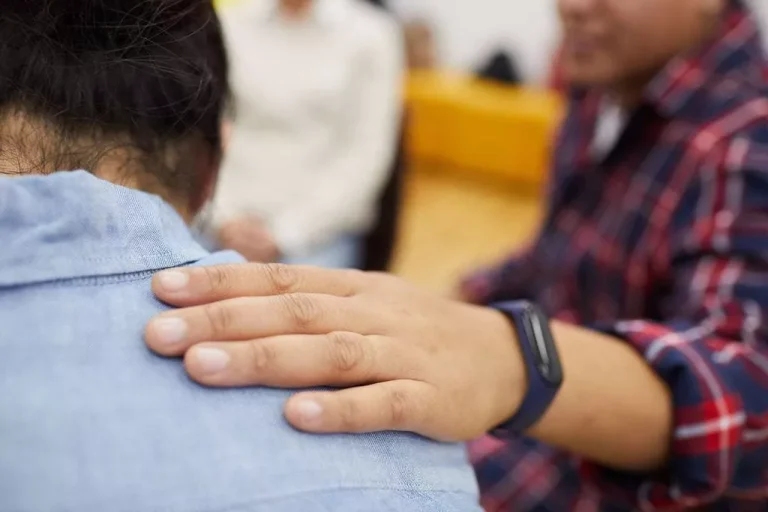Top 10 the most popular substance abuse group activities

Although there are many forms of psychotherapy for alcoholics, group therapy is just as crucial to recovery as individualized work with a professional. Group therapy is one of the most successful techniques employed today in the battle against addiction. It allows patients to engage in meaningful conversation with counselors and other patients and become more actively involved in their recovery and substance abuse group activities. Some may wonder what are some ideas for substance abuse group activities? This article will shed some light on the top 10 most popular activities.
Group therapy for substance abusers
Co-dependents’ and drug addicts’ support groups serve as a community whose primary goal is to support individuals in overcoming their addiction and foster the growth of positive, healthy relationships. Overcoming the mental illnesses that frequently coexist with substance abuse is a part of treating the condition. The most recent techniques in group therapy can effectively help addicts overcome their psychological issues.
Many individuals believe that group treatment is less effective. It is because people thought that the group’s patients have little prospect of resolving their issues independently. But it is not the case. In actuality, everything is the complete opposite. One of the best ways to cure addiction is through group therapy. Patients benefit from group therapy sessions because they can interact with others experiencing similar problems, which helps them understand their issues better. A licensed psychologist oversees the group therapy sessions. They employ the programs created by prominent psychiatrists and those created by experts who have already solved similar issues as psychological assistance.

Take back control of your life and start on the road to recovery now.
Reasons to choose group therapy during the addiction treatment
A person is almost instantly bound to failure if they attempt to deal with their weakness independently. Supporting individuals who have gone through a similar condition is crucial in the fight against addiction.
With the help of group therapy, you will receive encouragement, surround yourself with individuals experiencing similar issues, and you won’t have to battle your addiction alone. You will gain strength from the experiences, and you will feel more needed as a result of helping group members.
People who previously struggled with social interaction or communication have the chance to alter their behavior during treatment, which improves their overall well-being and interpersonal connections. It is essential to remember that the patient’s knowledge of their issue and willingness to address it are crucial admittance requirements to rehabilitation. For a treatment to be effective, motivation is indispensable.

Top 10 proven therapy activities
Attending a group therapy session for the first time might be frightening. Many patients are not sure what to anticipate and require some time to observe the group dynamics before speaking out. You are not alone if you feel awkward sharing in front of a group – it is normal. The following are substance abuse group activities you can experience throughout your experience in the support group:
- Talking about recovery path: Participants of the group meetings frequently discuss their ideas about their road to recovery. People are encouraged to discuss recovery-related issues they have resolved and those they want to settle in the future. The therapist, along with the rest of the participants, then responds to these inquiries.
- Describing emotions: To assist those struggling with specific psychological illnesses like sadness, depression, fear, anxiety, or stress, therapists frequently ask people to voice their struggles and how they battle them. It often results in a conversation about triggers.
- Thinking about triggers: In meetings intended to overcome substance use disorders, voicing personal triggers and ways of how to recognize them are frequent group activities for substance abuse. People frequently discuss their triggers, how they react to them, and any potential solutions they may have.
- Analyzing the language and speaking habits. How do particular words affect the way we think and behave? Why are certain words deemed “bad” while some are considered “good”? Do you have any words in mind when you think of substance abuse? How can you use the words you choose to help or hurt? These are some common questions that may arise during the activity.
- Finding objectives. Newer group members frequently worry they wouldn’t have any alternatives for substance abuse group activities or aspirations without their substance usage. Both individuals and groups attempt to develop options to replace substance use and create constructive goals in these circumstances.
- Anger control: Groups of people with drug use disorders frequently engage in exercises to improve their anger control. Depending on the organization and its members, these activities often recur. Some group participants may relate their stories while receiving advice and teaching on anger control strategies from therapists.
- Meditation about mindfulness. The art of mindfulness involves impartially monitoring the current moment. It can improve your sense of well-being and assist you in overcoming drug cravings and some difficulties associated with recovery. Through collective meditations, many recovery groups encourage awareness.
- Affirmations collage. Positive comments emphasizing your self-worth and recovery capacity are called affirmations. Many recovery groups create affirmation collages by writing encouraging phrases down, cutting them into strips, and attaching them to poster boards. These collages might act as everyday inspiration sources.
- Music therapy. Music is a common source of solace to anyone going through a healing process. Recovery organizations can emphasize music’s therapeutic benefits in a variety of ways. Group members might attempt to create a song together or share essential songs about recovery while taking turns playing an instrument.
- Aromatherapy. As music may soothe you, pleasant fragrances can do the same. They also aid in keeping you rooted in the present. Because of it, several recovery support groups urge participants to bring candles, essential oils, and different fragrant items. Group members can then talk about their smell preferences and the emotions they evoke.
The most basic kind of group psychotherapy is having topic discussions with patients. The following methods are employed in various types of therapy: conversation, patient opinion sharing, and thematic discussion. It has been demonstrated that different individuals suffering from addiction tend to trust other addicts more than a doctor. The approach is actively employed in numerous group counseling sessions.
Ways with an anti-relapse emphasis and methods providing patients with skills which increase their capacity to adapt are heavily weighted in group psychotherapy. Teaching addicts how to deal with relapsing alcoholism and effectively overcome the circumstances which previously caused relapse plays a specific role in this process.

This can be a difficult journey, but you don’t have to go it alone. Let us be your guide and provide you the environment needed to regain control of your life and begin the path to recovery.
Strong brotherhood of Eco Sober Houses
First-time rehab participants sometimes struggle with humiliation, distrust, and fear of shame and criticism. To begin working in a group, to collaborate, to trust, and to open up takes effort. Patients carry this with them from a world where they are overpowered by judgment and mistrust of their loved ones, coworkers, and friends.
However, the enormous expertise and understanding of professionals in a sober home and their commitment to treating each patient with kindness and compassion help people deal with these emotions. Eco Sober Houses recovery groups are an amazing chance to start a new life and return to society. Every patient who rejects alcohol or another addiction, after all, is a life spared. Eco Sober Houses cares about clients and forms a strong community where everyone will feel free and confident.




